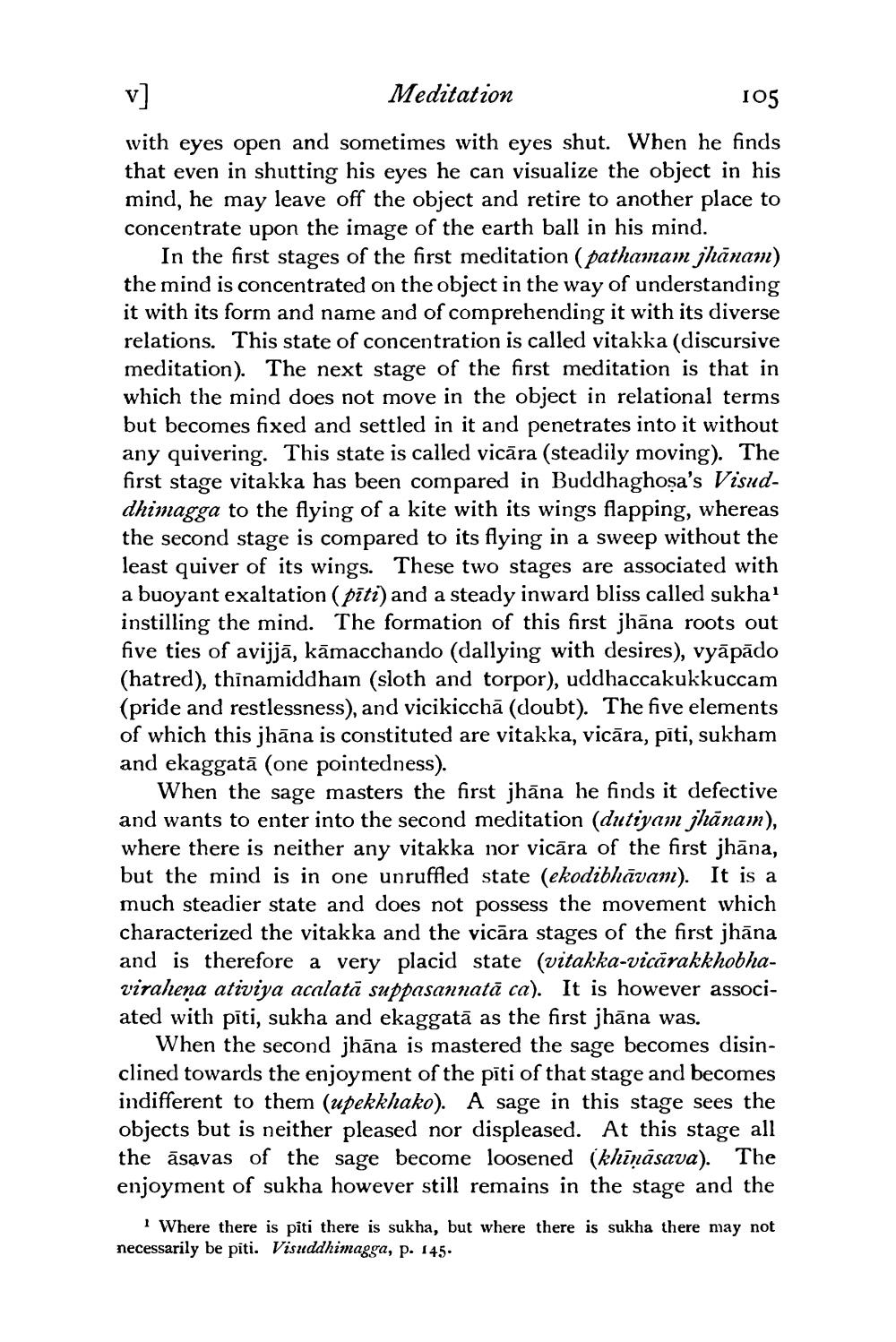________________
Meditation
105
with eyes open and sometimes with eyes shut. When he finds that even in shutting his eyes he can visualize the object in his mind, he may leave off the object and retire to another place to concentrate upon the image of the earth ball in his mind.
In the first stages of the first meditation pathamam jhānam) the mind is concentrated on the object in the way of understanding it with its form and name and of comprehending it with its diverse relations. This state of concentration is called vitakka (discursive meditation). The next stage of the first meditation is that in which the mind does not move in the object in relational terms but becomes fixed and settled in it and penetrates into it without any quivering. This state is called vicāra (steadily moving). The first stage vitakka has been compared in Buddhaghosa's Visuddhimagga to the flying of a kite with its wings flapping, whereas the second stage is compared to its flying in a sweep without the least quiver of its wings. These two stages are associated with a buoyant exaltation (piti) and a steady inward bliss called sukha! instilling the mind. The formation of this first jhāna roots out five ties of avijjā, kāmacchando (dallying with desires), vyāpādo (hatred), thinamiddhain (sloth and torpor), uddhaccakukkuccam (pride and restlessness), and vicikicchā (doubt). The five elements of which this jhāna is constituted are vitakka, vicāra, pīti, sukham and ekaggatā (one pointedness).
When the sage masters the first jhāna he finds it defective and wants to enter into the second meditation (dutiyam jhānam), where there is neither any vitakka nor vicāra of the first jhāna, but the mind is in one unruffled state (ekodibhāvan). It is a much steadier state and does not possess the movement which characterized the vitakka and the vicāra stages of the first jhāna and is therefore a very placid state (vitakka-vicarakkhobhavirahena ativiya acalată suppasannată ca). It is however associated with pīti, sukha and ekaggatā as the first jhāna was.
When the second jhāna is mastered the sage becomes disinclined towards the enjoyment of the pīti of that stage and becomes indifferent to them (upekkhako). A sage in this stage sees the objects but is neither pleased nor displeased. At this stage all the āsavas of the sage become loosened (khīņāsava). The enjoyment of sukha however still remains in the stage and the
I Where there is piti there is sukha, but where there is sukha there may not necessarily be piti. Visuddhimagga, p. 145.




